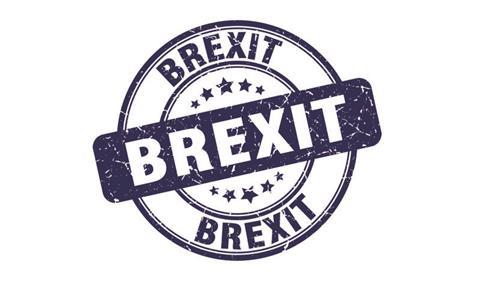Next year the speculation surrounding the UK's exit from the EU becomes a reality. In the first of a series of briefings for members following several meetings with government ministers and officials, RHA chief executive Richard Burnett looks at the knowns and unknowns of Brexit.
Known: On March 2019 the UK will leave the EU, the single market and the customs union. This means the end of free movement of goods and people between the UK and the EU and customs controls will be introduced. There will be a transition period of around two years after March 2019 when some or all of the current EU regulations will continue to apply in the UK.
Unknowns: Where and how these controls will happen is open to discussion. It has been agreed that there will be no 'hard' border between Northern Ireland (part of the UK) and the Republic Ireland (part of the EU), and both the UK and northern French local government agree that it would cause chaos to have physical customs controls at cross-Channel ports. The UK is working on a new electronic customs clearance system to replace the current Chief system and the aim is to have goods cleared as early in their journey and as far from the port of entry as possible.

The transport industry is calling on the government to release details of this system by March 2018 to give operators and shippers enough time to prepare the necessary systems. But international hauliers should start working with their customers now to bring paperwork up to the standards that will be required to ensure smooth customs clearance eg descriptions of goods must be adequate to allow a customs commodity code to be identified. Domestic operators will not be immune as any delays in the import of goods could affect delivery schedules. A hard Brexit could lead to more demand for UK warehousing to increase buffer stocks but this will be harder with perishable products, more of which may be produced in the UK after Brexit.
Known: EU residents the UK will be allowed to continue living and working here after Brexit.
Unknowns: The procedures for identifying those entitled to remain in the UK have yet to be agreed. Foreign drivers undertaking international haulage are advised to obtain full passports as they may no longer be allowed to re-enter the UK using other identity documents that are currently acceptable. Even though EU residents may be able to enter the UK via Ireland with no immigration controls they would still require a visa to enable them to work here legally. UK operators should prepare for a decline in the availability of EU drivers and warehouse staff by recruiting and training more UK staff.
Known: Once the UK leaves the EU, we can set our own cabotage rules to reduce or get rid of the current EU restriction of three domestic trips by foreign vehicles on any one visit to the UK.
Unknowns: Policing of the current rules is poor and there are few reliable statistics on the actual amount of cabotage taking place in the UK. In order to avoid restrictions on UK hauliers undertaking cabotage work within the EU, the UK government may agree to maintain alignment with EU rules in this area.
Known: On Brexit, an arrangement will be needed to allow the international movement of vehicles.
Unknowns: Whether this will be a permit system or mutual recognition of O-licences has yet to be decided. The UK government is taking this opportunity to review the Lorry Road User Charging system which charges foreign vehicles a flat fee for using UK roads. The RHA is opposing any moves that will increase UK hauliers' costs or see hauliers funding a new road pricing scheme that will later be used to charge car drivers.













